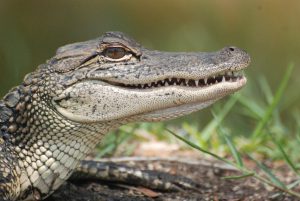Alligator Attack at Walt Disney World: How Wild Animals Can Change the Claim
On June 14, 2016, Lane Graves, a 2 year-old boy, was dragged from the shallows of a lagoon near the Walt Disney World Resort. He was later found dead, after the alligator dragged him away from his family and killed the child. The attack shocked park-goers and families throughout the nation. Soon, the news was filled with stories of parents sharing pictures of their children playing at the exact spot where the little boy lost his life.
Since then, The Walt Disney Company has taken every step to show remorse, sympathy, and compassion for the Graves family and visitors. But despite good will and efforts to remedy the situation, Lane’s family has a possible cause of action against the Happiest Place on Earth.
But what is the possible cause of action, or claim, they can file? Most importantly, what does this mean for Disney and other landowners who may face the same problems? What does it mean for their guests?
A Strict Liability Claim
Under strict liability, an owner of a wild animal can be held strictly liable for any injuries or damages caused by the animal, even if the owner took precautions or was not at fault. Wild animals are considered abnormally dangerous and ultra-hazardous due to their very nature. 
But, here Disney can argue that they do not own the alligators on their property. In fact, Disney has removed 244 alligators from 2006 to 2016. After the attack on June 14, they removed six more from the area. If the alligators return enough to be a “nuisance”, they are euthanized. So in this case, Disney does not want the alligators on their property and do not own them. So in the end, Disney cannot be held liable under a strict liability claim, but can only be held liable under a negligence claim.
A Negligence Claim
Under Tort law, the Graves family can sue Disney for failing in their duty to protect their guests from known, dangerous wildlife on property. To establish their claim, the Graves family will need to prove that Disney had:
- a duty to keep the area safe;
- they breached the duty;
- the breach was the cause of the child’s death; and
- the family suffers measurable damages due to the death.
While the analysis may seem obvious in cases like these, each aspect must be proven in turn. Disney World Resort is a commercial property, owned and operated by The Walt Disney Company. It invites people onto their land for a fee, and once they pay the fee, the guests are legally considered “invitees”, or more specifically “business invitees” or guests. The legal status of the Graves family is important, as it will determine the level of due care that Disney owes in the situation.
In this case, it is clear that the Grave family are guests of Walt Disney Resort. Disney did not put up adequate signs to warn guests about the real danger of alligator attacks. Their failure to put up proper signs should have been foreseeable to them that their guests may be hurt by an alligator, and that their guests would not have gone near or into the water if there was an adequate warning sign. Finally, it is undeniable that the Graves family suffered a terrible injury from the attack.
In this case, it is unlikely that Disney will be able to defend against a wrongful death claim from the Graves Family. But is it fair for Disney and other property owners to not face strict liability?
Landowners Get Additional Protection from the Law, So They Must Give Additional Protection to Their Guests.
As discussed earlier, landowners are held strictly liable for any injuries caused by a wild animal they own on their property. This includes pet tigers, lions, bears, and any other animal that is not domesticated. But it does not include wild animals that happen to roam the property.
The law was written with the understanding that wild animals are uncontrollable, especially animals that enter private property without knowledge of the owner. The law does not hold landowners responsible for the actions of a random, wild animal on their land.
But it does not mean landowners, like Disney, won’t face punishment for injury or death of a guest. The law declares that landowners like Disney have a duty to repair and correct known dangers, as well as a duty to reasonably inspect, discover, and correct unknown dangers in areas that guests are able to access.
What is “reasonable” is decided by the court, and it is often based on what the landowner is capable of doing. For example, Disney is a multi-billion dollar and they are known for exercising great control over the quality and safety of their parks. So the court may order Disney to do far more than an average landowner who also has alligators on their property.


Comments